#literary theory
Text
Y'all wanna know about a gender-non-conforming knight from 13th century France? No? That's okay- I'm fine with talking to myself.
I'm obsessed with gender performativity in early medieval texts- so obviously I had to know everything about Le Roman De Silence.
To preface-
So, long before there was the Marvel Cinematic Universe- there was the interconnected works of the Arthurian Legends. The original superheroes- King Arthur, Merlin, Morganna le Fey, and the rest of the cast. However, one of the lesser known (only arguably canonical) interconnected texts of the Arthurian legend hails from France. People argue over whether or not to include these texts as part of the cannon of King Arthur because it's technically french- and the french-english divide between characterization of all the main players of Arthur's court is remarkably different. Much research on this suggests the discrepancy of characterization is largely due to distance between where the stories originate, and sociopolitical tensions between the French and the English. Either people were too far apart to share stories- thus too far apart to keep characterization uniform, or they fucking hated each other enough to mess up the characterization on purpose. For example, many of the French portrayals of King Arthur paint him to be a rather terrible person, where English portrayals are generally more kind to him.
All that aside- many people will disagree that Le Roman de Silence should even be part of the Arthurian legend canon anyway- because it only mentions Merlin at the end of the poem and because it's a super french poem.
The main storyline is about this character named Silence. From the Old French Poem- Le Roman de Silence.
Gender? No- Never heard of it.
The latter half of the story in this poem is predicated on a complex mediation of Nature vs Nurture. What happens is that a baby is born into a wealthy family, and for sociopolitical reasons, the family decides to raise the girl baby as a boy. They name this child "silence." Silence grows up with full access to an education, as was typical for the boy children of aristocratic medieval families- this education becomes important later as Silence wrestle with where they fit into the larger social structure after maturing into adulthood. Essentially, they find the idea of marriage too boring and would like to be a Knight or Explorer instead. (I love them.) Anyway, it's fascinating to me that the conceptual ideas of nature and nurture are personified into being something like "deities" which are overseeing the growth of Silence through the ages- and so we get these deities commentary.
Silence wants to be a knight- so Nurture brags about being right that gender is more performative than it is biological. Then, later Silence grows up to be remarkably "pretty" and according to the deity of Nature- they brag about being right that biology and gender are intrinsically tied. It's such a thought-provoking mediation on gender as either performance or pure biology that I forget it was written in the 13th century- long before Freud or Lacan or any of the others who became hyper fixated on human presumption of gender as either a social category or a biological necessity.
I argued in a paper, once, that the narrative itself does actually finally end on the note that Gender is a performance, and it is tied into social roles only so the ruling class can have control of the population. That is why the stories ending shifts into horror-genre-esque of Silence marrying into the upper-ruling class.
I also have a strong urge to write a Fanfiction of Silence as a knight- who does not meet a sad fate but rather lives happily as a knight and eventually marries a princess. Okay- Okay? fine I said it. I said it-
Social pressure to marry?
The story takes a dark turn, however- when the King demands Silence to reveal themselves in front of the court. Obviously, even the author of the story was aware that misogynistic social standards would not allow for people to ever really be free of gender stereotypes and roles. So, Silence is then forced out of the adventurous lifestyle of a knight and into a marriage. Also, this is the place in the story where Merlin makes an appearance (I have a theory that Merlin is representative of the devil, and the author really hated that all AFAB people were forced into marriage back in 1200's. So that's why the devil shows up when all the bad shit is happening to Silence).
Inevitability and dismay-
What I find particularly interesting about this poem is the fact that the end, as Silence is forced into marriage and back into "proper" social roles for their assumed biological characteristics, is the fact that it is written like an early attempt at gothic horror!
So, one of the stipulations for something being a "gothic horror" is 1.) old, archaic, twisted buildings. (this blog is indeed named after my fixation with gothic horror elements, it's interplay relation to social reform, as its emphasis on decay as the tonal necessity for social indemnification). Anyway, the other most important aspect of gothic horror- is an overwhelming sense of desolation, isolation, and loneliness.
Sure, Silence is forced into marriage- but even with the forthright writing style of the author, we, as readers, are struck by Silence's loneliness. Thus, the "happily ever after" part of the storyline wherein the characters get married, as it traditional to chivalric romance, is recriminated against in subtext. Now, we have a moment in which the "happily ever after" is a creation of horror rather than peace.
Ending the narrative with marriage as equivalent to a loss of freedom and a sense of evermore-present loneliness, cumulating in the edifice of horror-struck fear in Silence at their own new future, is a remarkably bold social statement coming from a 13th century author.
I just think it's a really interesting text on the thematic points of negotiating Gender identity, in broader terms of performance and social roles, as much as it is a critique on the total social control that the monarchy held over the people of 13th century France.
Edit: I need to add that Silence themselves consistently rejects the idea that they are AFAB and instead only ever refers to themselves as "Silence" or "the knight"
#le roman de silence#medieval literature#13th century#manuscript#nature vs nurture#traditional gender roles#gender roles#france#french literature#french poetry#classic literature#academia#dark academia#gothic horror#marvel cinematic universe#king arthur#merlin#arthurian legend#arthurian mythology#arthurian literature#knight#medieval knight#gender#agender#nonbinary#chivalry#romantic literature#literary criticism#literary theory#poetry
21 notes
·
View notes
Text
GUYS, I FIGURED OUT THE BLACK TURTLES!
It's a detail of OTGW that's lowkey perplexed me since the series first aired. What's with the black turtles that appear in every episode? What role do they serve in the story, and what do they represent?

A small, seemingly inconsequential detail, but just the sort to occupy my mind every time I watch the show.
My first train of thought: Are they manifestations of The Beast's power and influence? If not, why does eating one turn Beatrice's dog into a slavering monster? But if so, why is Auntie Whispers purely benevolent despite eating one (and presumably much more)? Why aren't they themselves monstrous and malevolent? But also why aren't they, on the contrary, beautiful and benevolent? They're just ... sorta there, which suggests there's no supernatural nor moral element to them. Yet they're clearly not natural turtles, either ...
My second train of thpught: Are they representations of the Unknown's liminal nature, moving between land and water just as the Unknown is between life and death? Thus a foreshadow and a reminder of the brother's state? It would sorta make sense, given their omnipresence. Mirrored by the brother's Frog, whose amphibious nature is likewise liminal. And the weirdness of turtles specifically for this symbolic role fits the the weird aesthetic of The Unknown. Still, it didn't seem to quite fit.
BUT TONIGHT, I FIGURED OUT WHERE THEY COME FROM! THE OLD GRIST MILL!
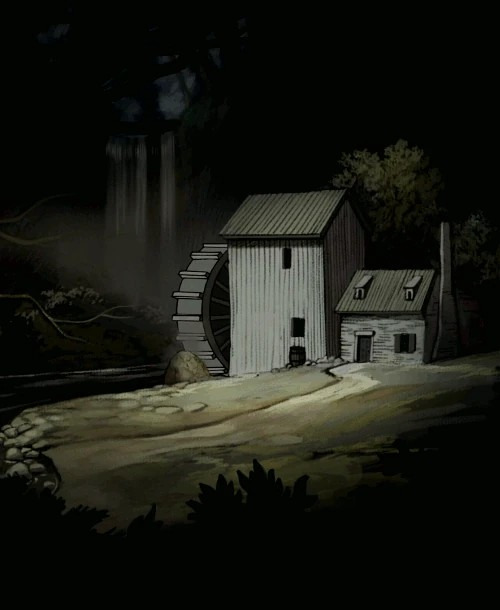
WHERE THE WOODSMAN HAS BEEN GRINDING EDELWOOD TREES INTO A DISTINCTIVELY BLACK OIL FOR THE LANTERN!
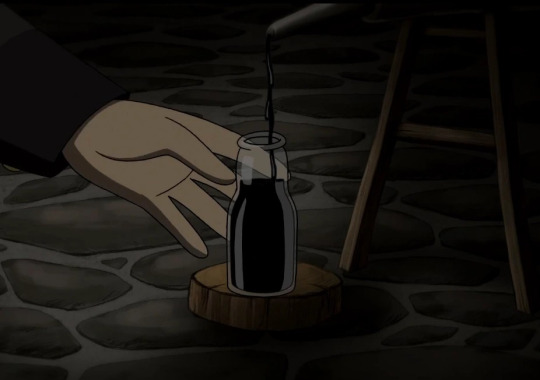
SOME OF WHICH MUST BE WASHED OFF, LEAKING, OR EVEN SPILLED OUTRIGHT INTO THE STREAM THAT POWERS THE MILL, AND THUS CONTAMINATING THE ENVIRONMENT!
It's pollution. Industrial Revolution era pollution is the reason for the black turtles distinctive color and weird effects on some people, but not others.
#over the garden wall#otgw#turtle#pollution#environment#literary analysis#critical analysis#literary theory
362 notes
·
View notes
Text

Some shelves in my new place.
#russian literature#literature#literary theory#literary criticism#philosophy#philosophy of art#philosophy of literature#art#bookshelves#books
148 notes
·
View notes
Text
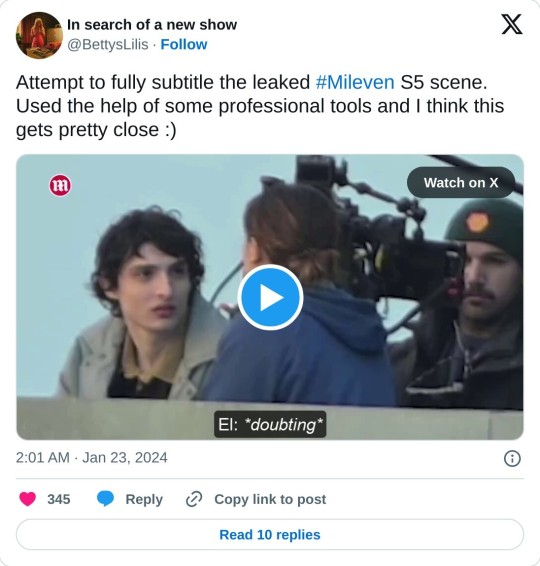
this is how the motivation is byler endgame. okay so this the theory.
1
the "you have to improve your motivation" is obviously about how mike is depressed & needs to improve his own motivation for coming out. & he's just pulling a will byers right here & projecting his feelings onto el.
2
the local village. guys we need to stop supporting this local village agenda because obviously the party doesnt return to the local village because they've seen too much. want to know why??? because the local village is HOMOPHOBIC. & that's why they don't go back.
3
the beautiful land with the waterfalls. as yonta explained in my chat, water is H^2 O. Yknow what that spells? hoo. not hoe, hoo which is exactly ONE letter off from homo. also three waterfalls? do you know what else has three sides? a triangle. yknow what symbol can represent gay people? a triangle. a PINK triangle. yknow what the heart is? red & pink is a shade of red giuys. mike is the heart, the heart CAN be pink, pink tirangle, triangle three sides, three waterfalls canon. & then el asks if thats possible & mike thinks that she might be on to him so he has to retract about the gay. but dont worry,, we all know what this really means.
#byler#stranger things#will byers#mike wheeler#byler headcanons#stranger things 5#st5#st5 spoilers#st5 production#st5 leaks#byler theory#byler analysis#byler proof#byler endgame#true#relatable#real things#lip sync#lip reading#literary theory
127 notes
·
View notes
Text
Aesthetic Emotions and the Catharsis of Tragedy
How I feel after watching Jimin's Production Diary - The Truth Untold.
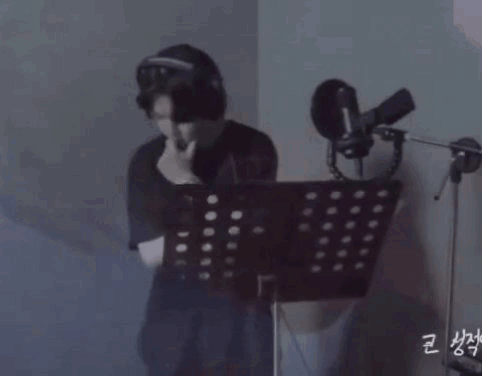
Why do we feel so drawn to emotional outpouring of others?
Why does the suffering and pain of artists make 'meaningful' art'?
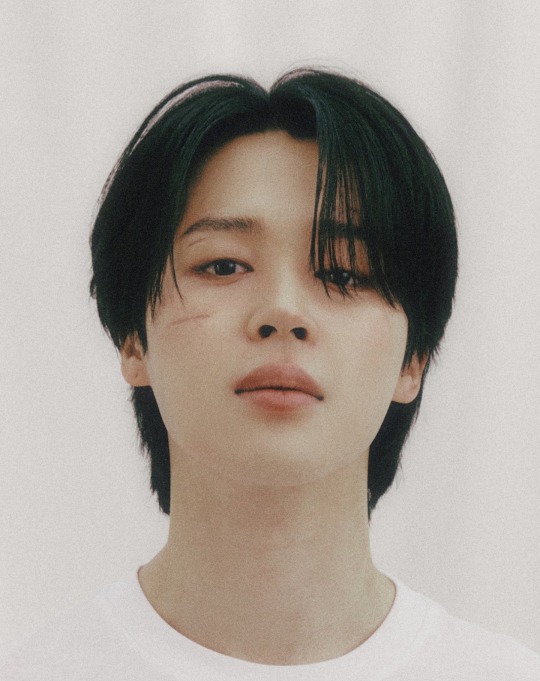
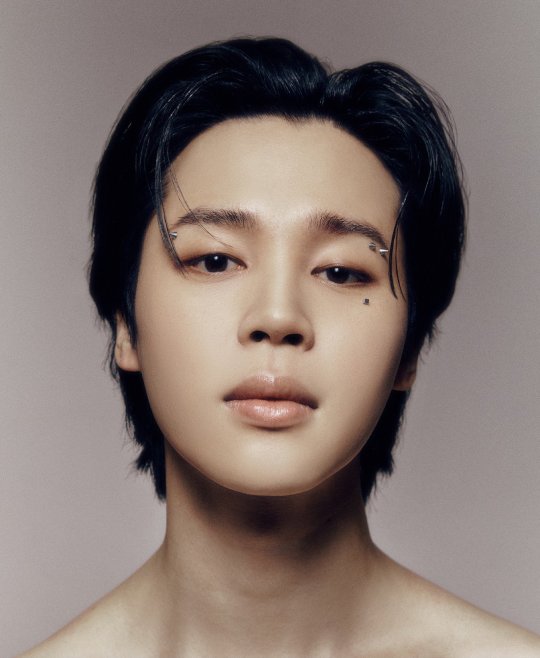
I'm going to tell you why I think Face is a Greek Tragedy and why, even though the album is a complete and perfect story, we still needed Letter.
You know how sometimes you just need a good cry? And afterwards you feel better, like a weight has lifted... that's catharsis.
Based on the philosophy of the ancient greek philosopers Aristotle and Plato, the catharsis offered by tragedy in art is good for your soul.
The tragedy I'm talking about is not like a natural disaster. Its not like an unfathomably sad real life situation such as war, or the failure of the referendum for The Voice to pass in Australia.
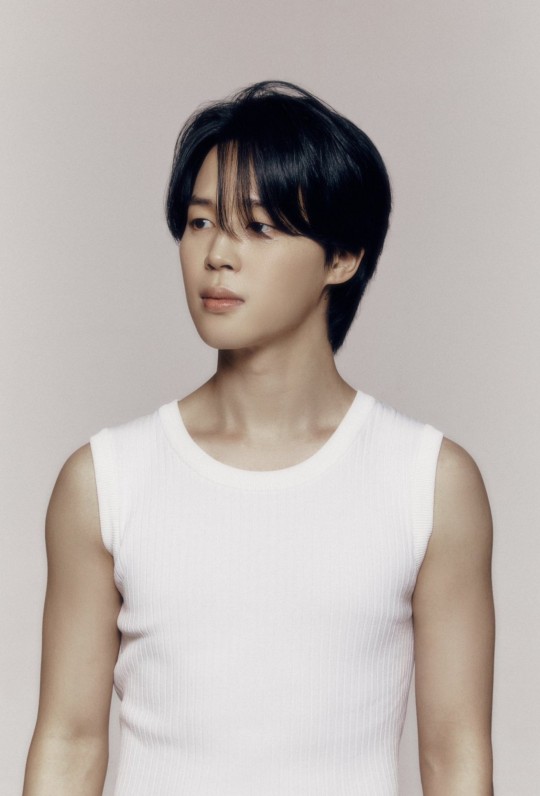
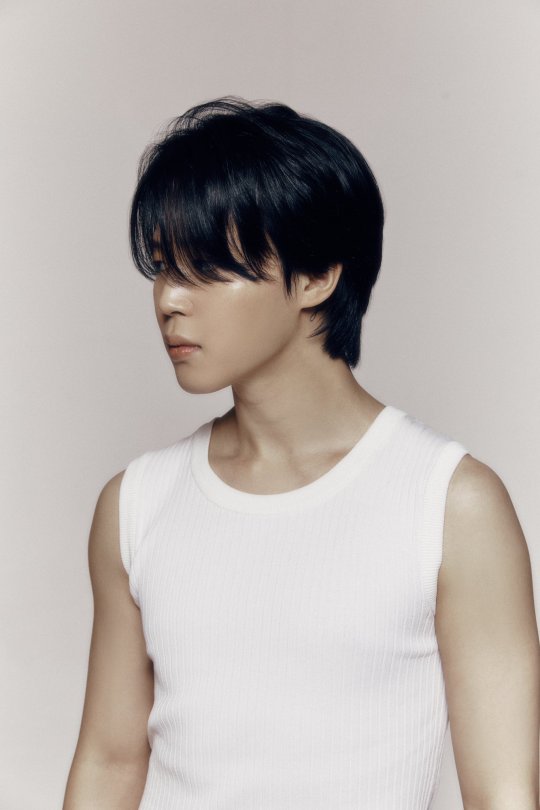
I'm talking about Tragedy as a literary and artistic genre.
Simply put, Tragedy as a genre is identified by pathos and passion. And the work must have a narrative structure - a beginning, a middle, and an end.
Pathos being the ability to identify with and pity a person going through hard times.
Passion referring to strong emotion (of any sort).
But how do we find the equivalent of that literary theory in work that's not a typical story? In a song, or in art?
In my opinion, we can see something similar in music if we combine literary theory and art theory. After all, what is a song but a story delivered with emotion through music, and experienced as art is?
There's a school of art theory called Aesthetic Emotionalism.
In a nutshell, this means that the VALUE of the artwork comes from the way it communicates or expresses emotion. Mood, colour, tone, language all contribute to the feelings we get when we experience that work, whether it's looking at a picture or listening to music. They help us pick up on the emotions the artist is conveying.
So what happens when you experience those emotions through art? What is catharsis?
The experience of tragic events in art, whether it's a heart-rending drama, or a beautiful sad song, or a dark and menacing painting, can give you access to emotions like fear, pity, and regret. Feeling those emotions through art lets you purge the heaviness of them from your mind and body, giving you a sense of relief. That's catharsis.
It seems counter-intuitive but ultimately the experience is uplifting. It's like having the benefits of a therapy session, but without having to face YOUR OWN demons.
Becuase of the narrative structure, and the resolution of conflict, there's always relief at the end of the story.
You feel cleansed of those strong emotions, reengergised and ready to go on. But you also feel a sense of calm understanding. The pathos part of the tragedy gives you insight into the suffering of the character in the story.
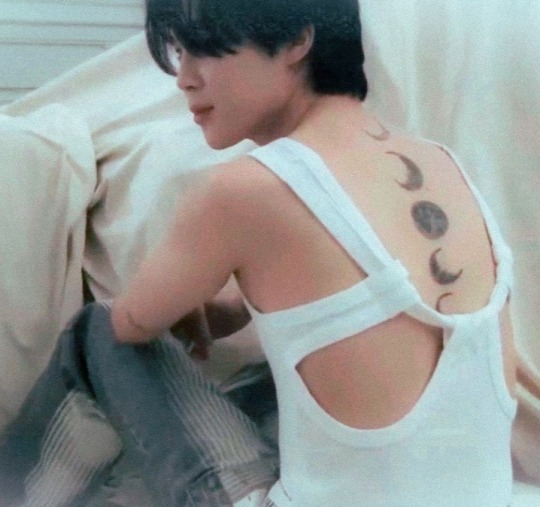
Think about the narrative structure of the album Face.
The album has a carefully planned narrative, and a sense of rising and falling energy with these songs that's strongly reminiscent of the structure of a Hero's Journey.
And think about the individual songs in terms of Aesthetic Emotionalism too ...how they convey emotions through tone, pace, language, colour etc.
I'm going to go ahead and say that the strength of the Aesthetic Emotionalism in these songs (and in BTS's music in general) is a major reason they have such impact even when you dont understand the lyrics.
Now let's combine them... look at the emotions conveyed in these songs and how the literary theory of a tragedy might apply to the album :
The first song is the slow and devastating Face Off, with its hypnotic rhythm and strange, discomforting sound effects. It reallly does transport us into a dreamlike/nightmare landscape. But the last few words of the song foreshadow that it's gonna be alright.
Then we have the surreal, melancholy Dive, drawing us further into this dystopian world. It also uses sound effects to make us feel like we are being pulled through time. Dive is reminiscent of a soundtrack from a video, but it's been separated from it's film reel, leaving the listener to guess and imagine the scenes unfolding. It feels like jimin has come untethered from his reality.
Like Crazy comes like rising action in a novel, and we get character development, a bit of plot information, and conflict. But the song itself is a viby dance track with a party atmosphere (if you don't look too closely) so we get a reprieve from the darkness of Face Off and Dive. Its hypnotic beat is enough to keep us locked in the surreal dreamlike world that's been built around us by the previous songs, and the lyrics echo that.
Alone takes us back down into the darkness of Jimin's state of mind, both lyrically and with its low tones and slow pace. We get the metronome, the marking of slow time.
Set Me Free has a totally different energy. Jimin's tone of of voice is much brighter, but hard and determined. Set Me Free isnt a request, it's a demand. The music is forceful. It's like a battle march. The story has reached its climax.
Returning to Like Crazy (English version) after Set Me Free, is like returning to a gentle refrain. Its so much softer and more plaintive than the demanding Set Me Free, echoing the earlier melody and words, but it hits sightly different in English. We are into the denouement of this story, the resolution has come.
But it's not the end.
It is not the end, because after a few minutes of silence, time to breathe, we get Letter.
Why is letter here?
Jimin could have released Letter on Weverse or Soundcloud or directly onto Spotify. But he chose to include it at the end of the album.
I feel this is so important, because the specific set of circumstances of this album means this Tragedy we've just experienced isn't entirely consistent with the literary genre.
FACE ticks all the boxes for a Tragedy in the literary sense, it has pathos and passion and narrative structure. If you were a casual listener and you got to the end of the album you would have a sense of catharsis, as intended. But there's a complication.
ARMY aren't casual listeners.
This is personal.
We know Park Jimin, the real person.
We know this isn't fiction. This shit is real. It was real for him when he wrote it and it's real for us now.
Achieving catharsis isn't that easy when it's personal. Not when the hurt is real.
That's why he gave us letter.
That's why he gave it ONLY TO US.
Letter is a soft sweet gift, a sentimental dedication full of reminiscences that only ARMY will understand. The melody is gentle, like a lullaby, and Jungkook's backup vocals are enough to make you weep, if you aren't weeping already.
(**I have a theory that jk either didn't know about letter or didn't know Jimin was going to ask him to sing. See this post for why)
Letter does exactly what it's meant to - it fills us with warmth. It makes us overflow with love. It's a soothing balm to heal our hearts.
And its everything we need in order to let go of those heavy feelings of fear and pity, of worry and sadness for Jimin that the album brought to the fore.

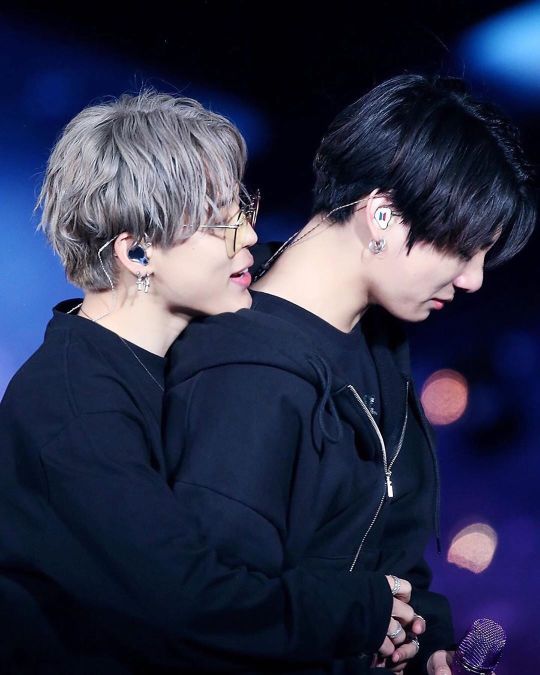
Jimin knew we would need more. That's why he he sent us letter, right at the very end.
"I'm sorry. Thank you," It says.
"Don't cry. It's gonna be alright."
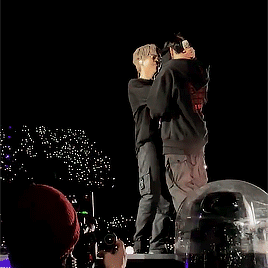
#park jimin#jeon jungguk#jikook#jimin face#park jimin face#park jimin letter#letter for army#pathos#plato#tragedy#aesthetic emotion#art theory#literary theory#bts#bts Jimin
140 notes
·
View notes
Text
I had the pdf for edward said's "orientalism" downloaded to my computer, and I thought it would be a good resource to share, so here it is.
for those unfamiliar, "orientalism" by palestinian scholar edward said is an examination of the cultural relationship between "occident" and "orient," and how cultures deemed the "orient," often as a result of colonialism, are othered, often through fetishization or vilification. said examines the history of orientalism and how it manifests according to the various cultures it has been applied to, as well as how it impacts multiple intersecting social spheres, such as gender, race, and class, as well as how the "us vs. them" rhetoric of orientalism fuels multiple kinds of oppression.
I became aware of this text while studying literary criticism for my creative writing degree, and would advise anyone to at least skim it, if not read it in its entirety, especially if you have an interest in writing and literature, media analysis, or the social sciences. orientalism may be a concept that has existed long before said put a name to it, but reading this analysis of what it means, as well as its consequences, has allowed me to spot instances of it in present-day media, culture, and rhetoric, and given me the tools to avoid it in my own creative work.
#pdf#pdf download#orientalism#orientalism edward said#edward said#palestine#literature#literary analysis#literary criticism#literary theory#media analysis
74 notes
·
View notes
Text
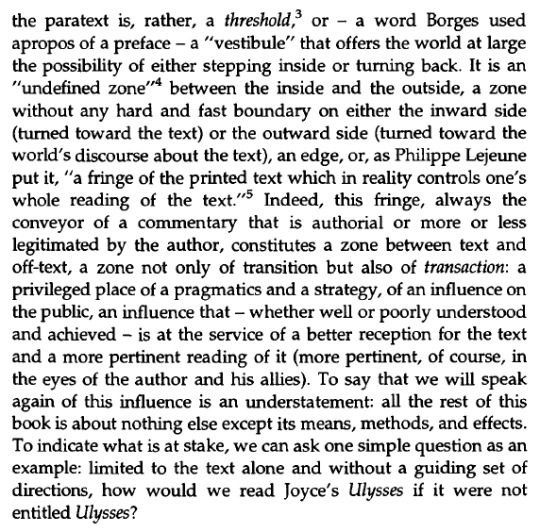
Gerard Genette, Paratexts, published originally in French in 1987, and here translated into English by Jane E. Lewin, 1991.
32 notes
·
View notes
Text
(Regretfully) I have created a substack to discuss Magic. May God help me (please do read it!)
#mtg#magic story#magic the gathering#vorthos#literary theory#mtgvorthos#cultural criticism#self-disclosure is tough
48 notes
·
View notes
Text

from the shelf [002/???]: eros the bittersweet, anne carson
#eros the bittersweet#anne carson#literary theory#english literature#classic literature#bookblr#desire#satisfy my hunger#on love#from the shelf#franz kafka#joan didion#light academia#jeanette winterson#letters to milena#literature#quotes#literary fiction#literary analysis#literary criticism#litblr
50 notes
·
View notes
Text
It's me ya boi
Anyway can we talk about how many parallels there are towards death and the strong themes of cheating death present in the DA games?
DAO: Cousland cheats death the first time by escaping their castle or whatever. Don't remember the other back stories but I know they also evade consequences or death. THEN you evade death AGAIN when you become a Warden. Then once more at the betrayal, when you get saved by Morgan and Flemeth. Then if you complete the dark ritual you manage to slay and survive the Archdemon. THE PROBLEM WITH THIS IS the entire point of being a Warden is to die. To slay dark spawns until you get killed or go insane -in which case you die anyway- Your whole premise is to be an honorable sacrifice, to die and take as many dark spawn as you can with you so that no one else has to. By surviving over and over again you're not only forsaking your purpose but spiting the wardens that came before you. How dare YOU be the one to survive? How dare you cheat your death over and over and over again? What about you makes you so special? More important than the other wardens? How fucking dare you?
Da2: So first Hawke survives the hordes of dark spawn in Fereldan, they survive the ogre attack in place of their sibling, then the trip to Kirkwall and then the entry into Kirkwall. How many died during those events, how many different times did Hawke cheat death in those instances? Hundreds of times, definitely. One wrong move and Hawke would've been killed, but they weren't. How lucky. Then in the deep roads, Hawke can lose their OTHER sibling to the taint. Then they lose their mother. What was all that surviving for if they were just going to lose all of their family, be left in this world without the people Hawke had worked so hard to save and to care for? Champion of Kirkwall, what a heavy title to bear with all the deaths of people Hawke couldn't save. They cheat death once more at the end, against Meredith.
DAI: Inky is sent to the chantry, and it blows up. You should've died but you didn't, instead you're given a key to close the rift and a woman saves you. Then you are found, imprisoned for terrorism. You should've been executed, good thing you have that key. Good thing you were the one to try and save Justinia, right? Good thing it was you who survived and not the thousands of others. Then comes the reinstitution of the Inquisition, a portion of the chantry long since dead -for good reason- that rises up from the ashes with you. Then in that one mission you get sent forward in time, in which everyone dies for you to get you to fix the disastrous consequences of you NOT defeating Corypheus. There are more moments but fast forwarding to the dragon secret and defeating Corypheus. You should not have been able to get that secret, but you did, the same way that key imbedded in your hand/arm. By all means, you were always meant to be dead. There was nothing special about Inky, there was no reason they should have survived any of what happened to them but they did. And that can be viewed as either happy, bittersweet, or outright tragic. Then, at the very end, the one thing that made you special, the key, has to be CUT OFF because it is killing you. You should have died but good thing Solas is there to take your arm, to help you cheat death again -which is a great parallel to how he helped you in the very beginning-
I stand by the idea that Dragon Age is a tragedy. The MC, whether that's Warden, or Hawke, or Inky has to give up EVERYTHING, their families, their lives, everything, to be forced into positions of power and save the world. And whether their willing or not, it doesn't matter because they will be forced into that position. Forced to be Hero of Fereldan, Champion of Kirkwall, or Inquisitor. You will be robbed of everything and forged into what people need you to be. That's the consequence of cheating death and being at the right place at the right time. But it's a good thing youre special, huh?
And you know the thing about being a Main Character is that you will cheat death over and over and over again, and the only consequence is that someone is going to be there to take your place, someone is going to die for you, eventually. There's nothing you can do about it except watch your life be taken away from you and watch all the people you love and care for die.
#dragon age 2#dragon age#da#chaos#dragon age inquisition#dragon age origins#inquisitor lavellan#essay#adhd#adhd hyperfixation#literary theory#tragedy
36 notes
·
View notes
Photo

Small Fires: An Epic in the Kitchen, Rebecca May Johnson
#studyblr#studygram#studyspo#study#read#reading#currently reading#b#books#bookstagram#bookblr#booklr#lit#literature#literary theory#philosophy#non fiction#essay#essays#food#cooking#recipe#food writing#tw food#text
249 notes
·
View notes
Text
Taylor Swift is Derivative nonsense, not intellectually placed allusions. I'll die on this hill, and I have many more examples beyond just the one listed below.
Let’s talk about the difference between being derivative and utilizing allusion in text. :)
I’ve seen a lot of defenses for Taylor Swift’s work that hinges on the theoretical concept of intertextuality. People don’t often know that they are arguing over the validity (or emotional impact) of intertextual cessions in Swift’s writing, but they are.
Intertextuality, if you don’t already know, is a set of determinable interwoven texts that all correspond on a particular thematic point. This encompasses, but is not limited to, the literary device of allusion.
There are many examples of intertextual works, since it is intrinsically post-modern. Yet, I want to talk about how Taylor Swift attempts allusions that only ever fall into flat-facing derivative blandness. I want to talk about how, yes, Swift is in the spirit of the age; yet her work devolves into derivative insincerity simply because she is not an artistic writer.
Now, for an egregiously bad allusion. (I think it’s worse because Romeo and Juliet is my favorite Shakespeare play). In “The Albatross” Swift writes, “A rose by any other name is a scandal” in which the obvious allusion is to Shakespeare's, “A Rose by any other name would smell as sweet” from the play Romeo and Juliet. The line in the play is often misquoted, so perhaps Swift is just ignorant, however the line means to draw attention to the fact that names are just words the that do not actually dictate the internal nature of someone.
The full line, from Shakespeare, reads “O be some other name/ What’s in a name? That which we call a rose/ by any other name would smell as sweet;/ So Romeo would, were he not Romeo call’d” (Romeo and Juliet). Thus, Juliet is lamenting the full divisive way in which her family is at odds with Romeo’s family; upon deeper consideration too, Juliet is modulating how social pressures, often outside our control particularly in youth, can impact and modify the discourse between reality, doing what is proper in accordance with the majority, and intrinsic human desire to fulfill our own needs. So, the line is not only explaining how Romeo and Juliet cannot be together overtly due to familial dispute, but in the same words it explains the full breadth of social dissertation for the pursuit of individual need. Afterall, he would still be Romeo "were he not Romeo call'd." Juliet is admitting that she would still love him with or without the constraint of social obligation due the environment, or family, in which we are born; thus, we can see how individually human desire can be placed at odds with the demands of mainstream society.
This is a nuanced conversation when considering it through moral theory. For instance, we often talk about how people should not go against the mainstream for immoral pursuit of individual desire and that is reasonable; yet herein Shakespeare's work the thematic point is on the morality of love and desire to go against social convention. Shakespeare is saying, "Love is a greater moral good than that of social obligation to follow tradition and to hate who you are trained to hate based on parental teaching." It's a genius fucking line, in a genius fucking play. Now, we all know how the play ends, the lovers run off together, they have a brief day in the sun. However, social pressure and adult obligation catch up to them again and thus they die for it. They die for their courage to love and to go against the mainstream.
Let’s return to Taylor Swift, the human embodiment of mainstream social pressure, as she writes that "a rose by any name is a scandal." As such, she is saying that all roses everywhere are just a scandal waiting to happen. If everything is a scandal, rather than speaking to any nuance grief to the pervasiveness' of social pressure to adhere to mainstream. Swift is simply throwing petulance to the world, by saying “Rose by any other name is a scandal” she limits what a rose could be, or become in using the verb “is” to fully solidify a rose as a scandal; which is a message that is diametrically opposed to the thematic point Shakespeare is making with his line. For Swift, there is no redemption, no nuance, and there is no subtext in which implicit messaging lay to tell people that going against the mainstream might just be the last thing you ever do but God is it worth it. To live with that brief day in the sun. And die for courage. Swift is just saying the opposite and stating that the mainstream is inevitable- there is no use in fighting it. A name is a name. It remains to tell the rose exactly what it is. Swift lacks imagination.
I would argue that Swift does make obvious attempts at allusion in her work, yet it is so poorly done because she does not actually see or use the thematic point of the source material from which she pulls her allusions. For allusions, to be done in an artistic impactful manner, we must keep to the thematic point of the source material. When the allusion is done correctly there is a “layering” effect in literature that redoubles the overarching themes of human experience in a way that calls us from the past, Shakespeare, to the present. Thus, is the theory of intertextuality in literary works.
(I made that bold because it's the main point of this, and I don't want anyone to miss it).
Taylor Swift’s work here simply does not measure up to anything artistic, thoughtful, or well-done. It is simply derivative of Shakespeare, but I don't think it qualifies as a true allusion.
#anti taylor swift#the tortured poets department#ex swiftie#ttpd#shakespeare#romeo and juliet#philosophy#moral theory#literary theory#literary criticism#english lit student#the albatross
163 notes
·
View notes
Text
My argument against AI writing basically boils down to this: who do you want controlling the narrative - yourself, or the robots?
Because being able to sit down and write - anything, from an essay to a book to a text message - is power. Having that skill gives you autonomy, independence, the means to express your own views on things, and present information in a way that you can control.
Palming all that off to an AI on the other hand? Are you telling me you want to give up self-expression and creative independence? If AI continues to accelerate at this rate, in 10, 20 years from now we’ll have a generation of people who won’t be able to express themselves in writing, who won’t be able to formulate their own views coherently, because they’ve never been given the tools and learned how. Literacy in this country is already at an all-time low, and now you’re giving away your power, control, and creative expression to a tech giant that I’m sure has no qualms about systemically stifling all independent free though and creative power.
Words are power.
#anti ai#anti ai writing#writing#writeblr#literature#literary theory#humanities#fuck ai#no bots no ai don’t let free thought die#essays#essay writing#power#freedom#control
118 notes
·
View notes
Text
Theories of the Philosophy of Literature
The philosophy of literature encompasses various theories that explore the nature, purpose, and significance of literature. Here are some prominent theories in this field:
Mimetic Theory: This theory, associated with Aristotle, suggests that literature imitates or reflects aspects of the real world. It focuses on the representation of human actions and characters.
Expressive Theory: This perspective emphasizes the expression of the author's emotions, thoughts, and experiences through literature. The work is seen as a medium for the author's self-expression.
Aesthetic Theory: Aesthetic theories, such as those by Immanuel Kant, focus on the intrinsic beauty and form of literature. They explore how literature provides aesthetic experiences and engages the imagination.
Reader-Response Theory: This theory considers the role of the reader in interpreting and giving meaning to a literary work. It suggests that meaning is not solely derived from the author's intentions but is co-created by the reader.
Structuralism and Semiotics: These theories, associated with figures like Roland Barthes, analyze the underlying structures and signs in literature. They explore how language and symbols create meaning.
Deconstruction: Developed by Jacques Derrida, deconstruction challenges fixed meanings in literature. It emphasizes the instability of language and the presence of multiple interpretations.
Feminist Literary Criticism: This approach examines literature through the lens of gender and challenges patriarchal norms. It explores how literature reflects and reinforces societal attitudes toward women.
Postcolonial Theory: Postcolonial literary criticism examines works in the context of colonialism and its aftermath. It explores how literature addresses issues of power, identity, and cultural representation.
Psychoanalytic Literary Criticism: Drawing from Freudian and Jungian theories, this approach explores the psychological dimensions of characters and narratives in literature. It delves into unconscious motivations and symbolism.
Ethical Criticism: Ethical theories in literature examine the moral implications and ethical choices presented in literary works. It considers how literature engages with ethical questions and influences readers' moral perspectives.
Cultural Criticism: Cultural theories analyze literature in the context of cultural practices, beliefs, and values. They explore how literature reflects and shapes cultural identities.
Narrative Theory: Narrative theorists examine the structure and function of narratives in literature. They explore how stories are constructed and how they contribute to our understanding of the world.
These theories offer diverse perspectives for interpreting and understanding the complexities of literature.
#philosophy#epistemology#knowledge#learning#chatgpt#education#Philosophy of Literature#Literary Theory#Literary Criticism#Hermeneutics#Aesthetics#Literary Interpretation#Reader-Response Theory#Deconstructionism#Feminist Literary Theory#Psychoanalytic Literary Theory#Postcolonial Literary Theory
23 notes
·
View notes
Text

14 notes
·
View notes
Text
"For the function of art is never to illustrate a truth—or even an interrogation—known in advance, but to bring into the world certain interrogations (and also, perhaps, in time, certain answers) not yet known as such to themselves."
Robbe-Grillet, The Use of Theory
#dark academia#da#academia#dark aestetic#quote#literary theory#literature#art#robbe-grillet#alain robbe grillet#robbe grillet#xx
24 notes
·
View notes